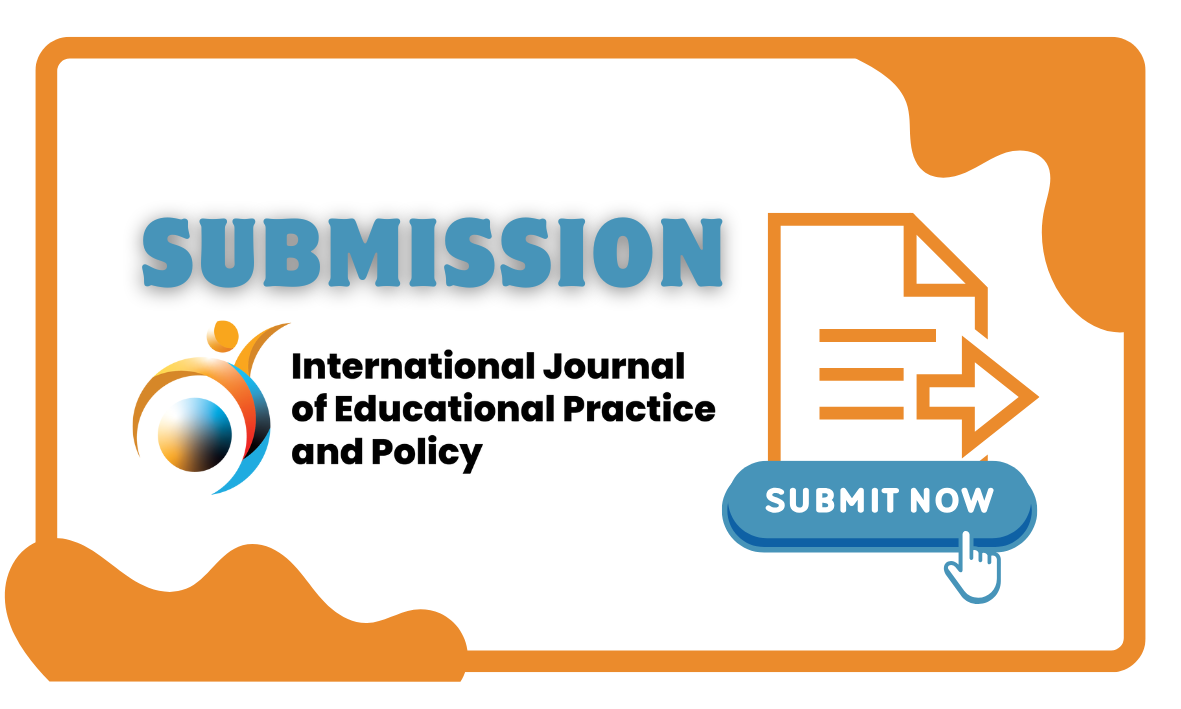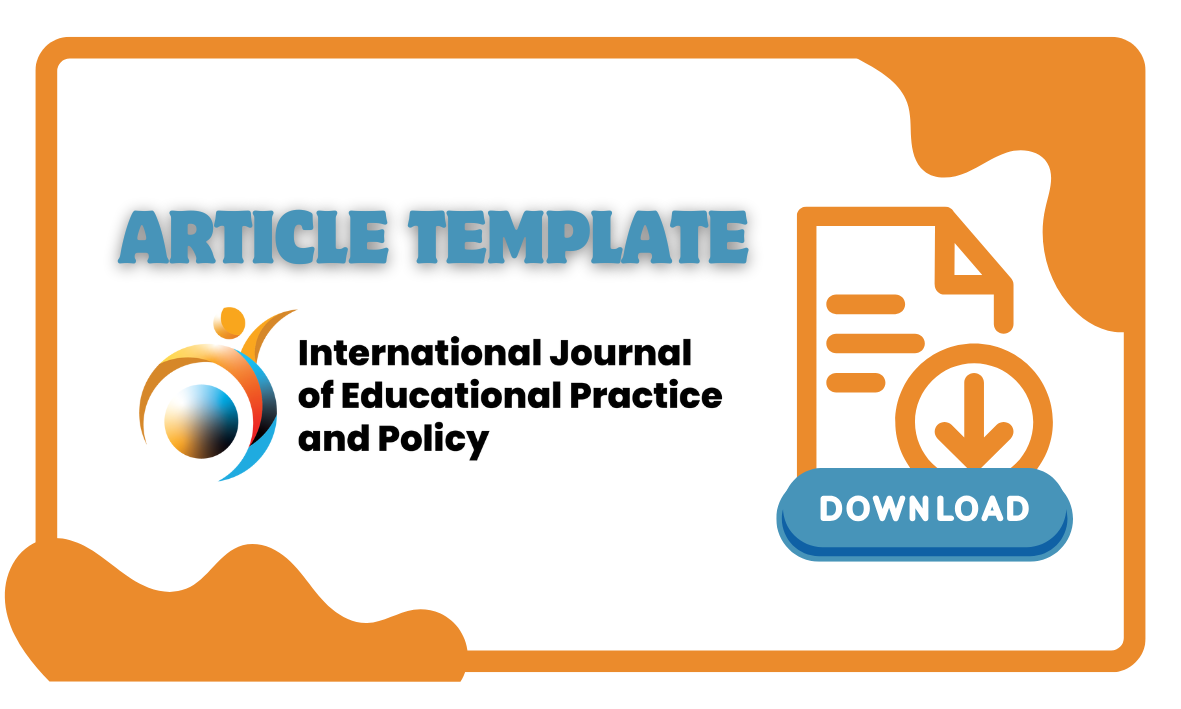Analysis of The Parenting Method used by Working Parents in Shaping Children's Personality
DOI:
https://doi.org/10.61220/ijepp.v1i2.0239Keywords:
Parenting, Working Parent, Children PersonalityAbstract
The objective of this study is to determine the type of career parenting and its impact on the development of children's personalities. The descriptive phenomology method is used in this study. The study was conducted out in Sibolga City, Hutabarangan Village, and Sibolga Julu. Three youngsters aged 12 to 14 years old, as well as their parents, participated in the study. Unstructured interviews and observations are used to acquire data. The data analysis method employed is qualitative descriptive data analysis. According to the findings of this study, the parenting style of career parents has a substantial impact on the personalities of their children. A qualitative investigation of three parents who worked as small merchants, restaurant employees, and factory workers revealed disparities in parenting approaches, namely democratic and permissive. In this instance, it is critical for working parents with limited time to find methods to be actively involved in their children's life. For example, regular communication, listening to children's feelings, and spending quality time together can all help.
References
Asy-Syauqi, I. M., Sari, I. N. B., & Irfani, B. (2024). Pengasuhan berbasis nilai: Strategi orang tua dalam menanamkan moralitas dan etika kepada anak di era digital. Al-Athfal: Jurnal Pendidikan Anak, 5(2), 1443. https://doi.org/10.46773/alathfal.v5i2.1443
Ayun, Q. (2017). Pola asuh orang tua dan metode pengasuhan dalam membentuk kepribadian anak. ThufuLA: Jurnal Inovasi Pendidikan Guru Raudhatul Athfal, 5(1), 102-122. http://dx.doi.org/10.21043/thufula.v5i1.2421
Fadhilah, T. N., Handayani, D. E., & Rofian, R. (2019). Analisis pola asuh orang tua terhadap motivasi belajar siswa. Jurnal Pedagogi Dan Pembelajaran, 2(2), 249-255. https://doi.org/10.23887/jp2.v2i2.17916
Fathurrohman. (2019). Implementasi Pendidikan Moral di Sekolah Dasar. Jurnal Bidang Pendidikan Dasar (JBPD), 3(1), 79-86. https://doi.org/10.21067/jbpd.v3i1.2929
Harahap, E. F., Khairunnisa, N., Araminta, N., & Sitorus, M. (2024). The role of parents as role models in children's moral education. Absorbent Mind, 5(1). https://doi.org/10.37680/absorbent_mind.v5i1.6671
Hasanah, E. (2019). Perkembangan Moral Siswa Sekolah Dasar Berdasarkan Teori Kohlberg. JIPSINDO, 2 (6), 131-145. https://doi.org/10.21831/jipsindo.v6i2.28400
Hibatulloh, S., N., & Ali, M. (2024). The role of parents in shaping children's morality in Kembangan Village Baki Sukoharjo. Indonesian Journal of Early Childhood Islamic Education, 7(2). https://doi.org/10.35896/ijecie.v7i2.622
Khobir, A., Khotijah, & Chonitsa, A. (2024). Parental influence on the development of social ethics in Indonesian children. Global Journal of Psychology Research: New Trends and Issues, 14(2), 39–49. https://doi.org/10.18844/gjpr.v14i2.9719
Lesmi, K. (2022). Peran Pola Asuh Orang Tua Yang Bekerja Pada Perkembangan Sosial Emosional Anak Usia Dini. JP3M: Jurnal Pendidikan, Pembelajaran dan Pemberdayaan Masyarakat, 4(1), 296-304. https://doi.org/10.37577/jp3m.v4i1.404
Musslifah, A. R., Cahyani, R. R., Rifayani, H., & Hastuti, I. B. (2021). Peran pola asuh orang tua terhadap perilaku agresif pada anak. Jurnal Talenta, 10(2), 5-21. https://jurnal.usahidsolo.ac.id/index.php/JTL/article/view/759
Nasution, M. (2018). Pola Asuh Permisif Terhadap Agresifitas Anak Di Lingkungan X Kelurahan Suka Maju Kecamatan Medan Johor. In Prosiding Konferensi Nasional Ke-8 Asosiasi Program Pascasarjana Perguruan Tinggi Muhammadiyah. https://www.appptma.org/wp-content/uploads/2019/07/21.978-602-50710-9-6.pdf
Nopilana, J. (2025). Peranan orang tua dalam pembentuk moral anak. Indonesian Journal of Elementary and Childhood Education, 6(1), 15–23.
Talibandang, F., & Langi, F. M. (2021). Pengaruh Pola Asuh Orang Tua Terhadap Pembentukan Kepribadian Anak. Journal of Psychology Humanlight, 2(1), 48-68. https://doi.org/10.51667/jph.v2i1.558
Rosiana, R., Fathurohman, I., & Kuryanto. (2021). Analisis Pola Asuh Orang Tua Yang Bekerja Terhadap Pembentukan Moral Kejujuran Anak. Primary: Jurnal Pendidikan Sekolah Dasar, 10(6), 1599-1609. http://dx.doi.org/10.33578/jpfkip.v10i6.8235
Sulastri, A., et al. (2025). Peran orang tua pekerja dalam penanaman moral spiritual pada anak usia dini (Studi kasus di Munjuljaya, Purwakarta). Universitas Pendidikan Indonesia. https://repository.upi.edu/77271/
Sulastri, M., Martini, M., Sudarmono, A. A., Syahrul, M., & Sumardin, A. (2024). Peran orang tua dalam pembinaan akhlak anak di Kelurahan Mata Air Kecamatan Reok Kabupaten Manggarai NTT. Pendas: Jurnal Ilmiah Pendidikan Dasar, 10(3). https://doi.org/10.23969/jp.v10i03.31770
Suryana, D., & Sakti, R. (2022). Tipe Pola Asuh Orang Tua dan Implikasinya terhadap Kepribadian Anak Usia Dini. Jurnal Obsesi: Jurnal Pendidikan Anak Usia Dini, 6(5), 4479-4492. http://dx.doi.org/10.31004/obsesi.v6i5.1852
Suteja, J., & Yusriah, Y. (2017). Dampak pola asuh orang tua terhadap perkembangan sosial-emosional anak. AWLADY: Jurnal Pendidikan Anak, 3(1). 1-14. http://dx.doi.org/10.24235/awlady.v3i1.1331
Wibowo, A., & Gunawan. (2015). Pendidikan karakter berbasis kearifan lokal di sekolah: konsep, strategi, dan implementasi. Pustaka Pelajar.
Zatihulwani, E. Z. (2025). The relationship between parenting patterns and moral development of preschool-aged children. Fundamental and Management Nursing Journal, 8(1). https://doi.org/10.20473/fmnj.v8i1.62999
Downloads
Published
Issue
Section
License
Copyright (c) 2024 Mei Nita Hutauruk, Yusnadi Yusnadi, muhammad takwin machmud (Author)

This work is licensed under a Creative Commons Attribution-ShareAlike 4.0 International License.










 Email :
Email : 